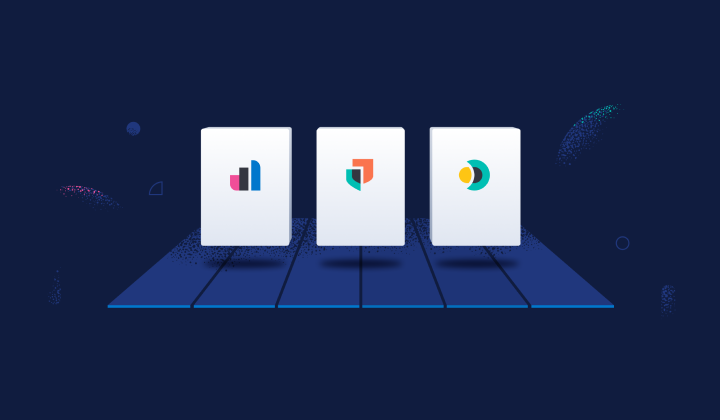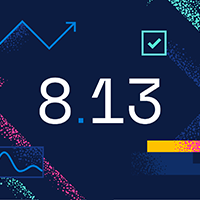From POC to Prod with Elasticsearch: A Vandis Story (Part 1)
Eight days. That’s how much time Vandis’ Director of Engineering had to go from proof-of-concept to production. There was a job to do — and he wasn’t alone.
*****
Sitting in his in-laws' basement days before the Christmas holiday, Ryan Young, Director of Engineering at Vandis, had to push his Elastic deployment to production on January 1, 2016. With him every step of the way was Jason Bryan, Elastic Support Engineer. But more on that in a minute.
Vandis is a technology reseller based in New York that does consultative architectural design and security solutions for companies requiring infrastructure services like networking and firewalls, in addition to centralized logging and syslog threat analysis.
We sat down with Ryan and Jason to talk about working together and what it’s like to have the full force of the Elastic team helping keep their Elastic Stack going strong.
Please note that this interview has been edited for length and clarity.
*****
Let’s start with you, Ryan. What’s it like to have an Elastic support engineer such as Jason assigned to work specifically with you on your Elasticsearch deployment? How does the engagement unfold and why does it differ from other experiences you’ve had?
Ryan: It's definitely a new support experience for me. The Elastic support model has done a lot in terms of helping me manage my cycles. It's not a I-have-to-call-in-and-speak-to-someone-new-every-time model; I can call Jason or send him an email with any questions because he knows my system so well.
Similarly, Jason also will call us just to say, "Hey, I was thinking about something. You should look at this as your next option." It's been a truly pleasant experience. I jokingly tell my CEO that he's got half an employee he doesn't know about.
That’s excellent to hear. Jason, what's it like from your perspective?
Jason: I like to take a proactive approach to my responses to Ryan and his team. I think responses should be applicable directly to their environment and not just a broad stroke like, "Here are some things people do." I like to provide examples that apply specifically to the Vandis environment, that they can take and use in production.
Ryan and his team are ideal customers because we're always discussing things. They trust us, we trust them, and we just have this mutual relationship that carries on through all of our support interactions.
I've been supporting open source software for seventeen years. I've managed product development in my past. Every Elastic support engineer is high caliber. We don't sit here and take inbound tier-one support calls. I know Ryan, I know the Vandis use case, I know the environment. I feel like I'm a branch of his team. That's how we do things and that's my mentality when I approach Vandis.
Ryan, can you tell me about a time when Jason and the Elastic team have been instrumental in your success?
Ryan: To give you a little bit of history, our proof-of-concept cluster has been running since late September. We got funding and had a go-live date within my company for January 1. On December 23, we signed the contract, while I was at my in-laws for Christmas. December 26, 27, 28, 29, 30, Jason worked very closely with me in terms of moving on our proof-of-concept environment into a full-production environment.
When a new cluster spun up and started to move data, I was working in my in-laws’ basement and my wife is sleeping next to me in bed, and I just stood up and yelled, "Yes!"
I woke her up. She asked, "What? What?"
I said, "Nothing. The nerdiest thing just happened, don't worry about it."
I could not have done it without Jason and the support team that I had, especially with the tight turnaround. My hat’s off to everyone at Elastic. It has been an absolute pleasure to work with them.
Jason, can you share what it’s like to have the entire Elastic engineering network to tap into so you can support customers like Ryan and his team?
Jason: With any of the teams I have one-click access to our engineers, and that translates to one- or maybe two-click access for Ryan and Vandis. Elastic support is part of the Elastic engineering team. We all have the same goal. We want our customers to be successful.
And for you, Ryan? Do you take comfort in having that access to the engineers who know every aspect of the software?
Ryan: There's a lot of comfort in that. Before I had support, I was a lurker on IRC. Yes, all those guys and ladies do a great job of being available there and answering questions. They take a lot of pride in the platform, but at the end of the day, we're all busy and they might not have the time to be there.
Having the ability to just shoot a question to Jason that's like, "I'm going to throw this way out there. You mind just looking it up?" And having him come back and say, "Hey man, listen, I talked to the guy who actually wrote the code and it can do that. They want to know your use case a little more and walk through that."
When I got back from Elastic{ON}16, I told my boss that one of the great things about attending is that I feel like I'm not waiting for a product to develop for the features I want to see. I have more of a direct line within the company to talk about what's important to me. It might not always get done, but I know that I have someone on the inside who's waving my flag and saying, "Listen, this is what my customer is asking for.” And I know that voice is being heard, instead of me putting it up on a blog or a listserv somewhere saying, "I'd really love to see Elastic do this."
So absolutely, 100%, it's a lot of weight off my shoulders.
Part 2 of this interview covers Vandis’ use of Shield (security for Elasticsearch), Packetbeat, and more.











